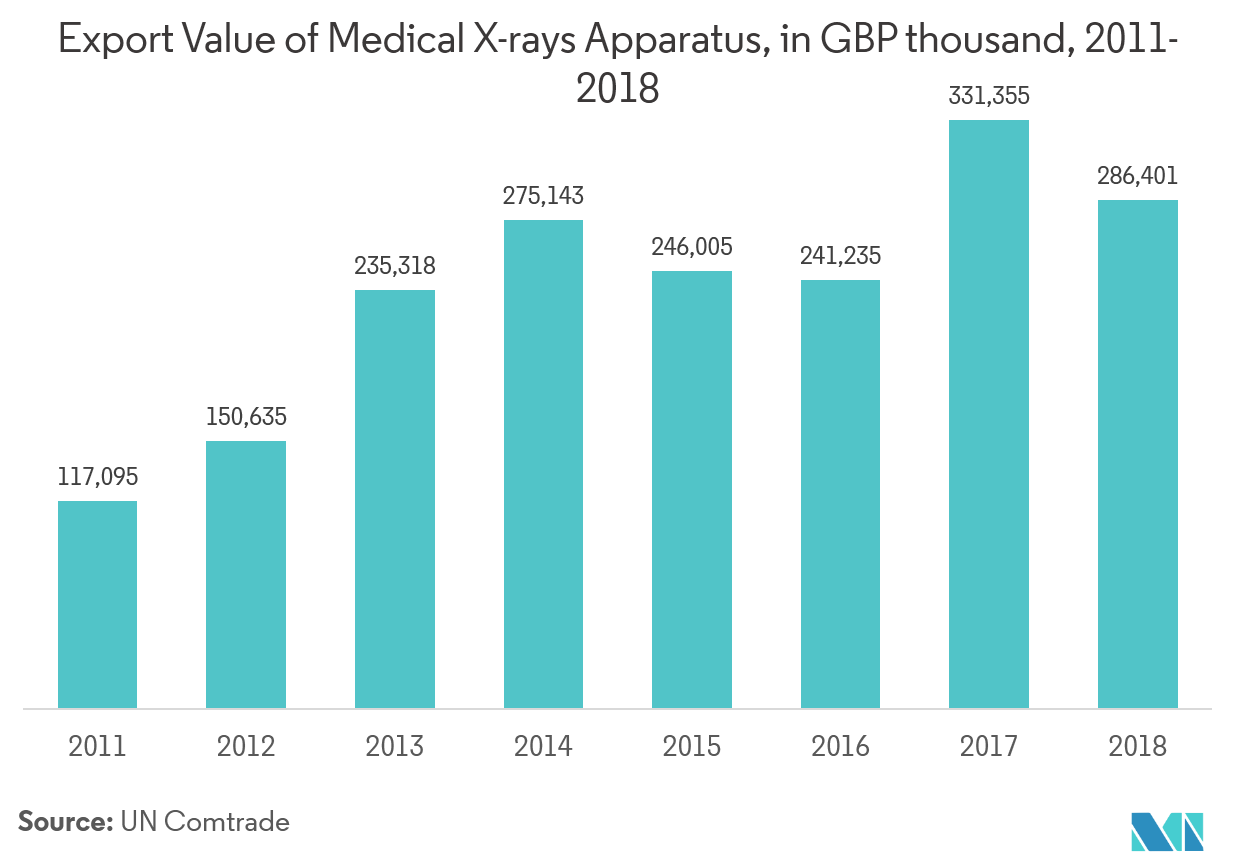Market Trends of X-ray Generator Industry
This section covers the major market trends shaping the X-Ray Generator Market according to our research experts:
Medical X-ray Generator to hold Highest Share
- Advances in medical imaging, primarily in computed tomography (CT) technology, have resulted in the rapid growth of X-ray examinations. Besides, the global geriatric population base at high risk of developing these chronic diseases is expected to stimulate the demand for high-resolution imaging systems.
- The use of X-ray generators for medical purposes is an effective response to this high demand, providing the industry with high growth potential throughout the forecast period. In terms of types, the global industry is classified as stationary and portable.
- Advances in technology, such as changing the design of the computer-controlled X-ray generator interface with the imaging system, allow for better synchronization of the imaging system, usually with X-ray generators.
- The increasing number of road accidents has increased the need for X-ray equipment, thereby offering growth to the market studied. According to the Indian Government, a total of 4,64,910 road accidents were reported in 2017, which caused injuries to 4,70,975 persons. The diagnosing of these persons demands the need for medical imaging equipment, which in turn reflects the demand for X-ray generators.

North America to Hold Significant Share
- The United States houses different stakeholders in the x-ray technology space, including x-ray component providers, x-ray system providers, etc. Prominent X-ray Generator companies in the region include, GE, Siemens Healthineers, Spellman High Voltage Electronics Corporation, Comet group, among others.
- According to the National Cancer Institute in 2018, an estimated 1,735,350 new cases of cancer have been diagnosed in the United States. Further, the institute predicts that the number of new cases of cancer is 439.2 per 100,000 men and women per year. Also, it predicts that the number of new cancer cases per year is expected to rise to 23.6 million by 2030 in the United States.
- The multinational companies in the region are integrating X-ray devices with artificial intelligence technology to reduce the detection time. For instance, GE has developed AI-powered X-ray systems for patients suffering from a collapsed lung.
- The major driver for x-ray generators for the industrial applications in the country is regulations and standards mandated by the concerned associations. For instance, rules set by agencies, like American Society for Testing and Materials (ASTM), American Society of Mechanical Engineers (ASME), National Aerospace and Defense Contractors Accreditation Program (NADCAP), CGSB, etc., mandate the testing as an integral part of manufacturing and construction projects.


